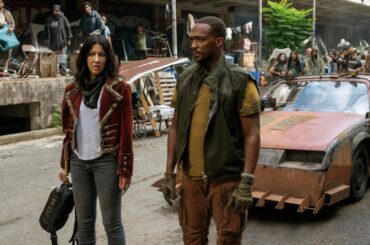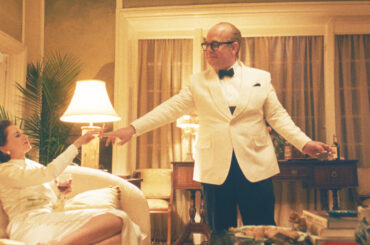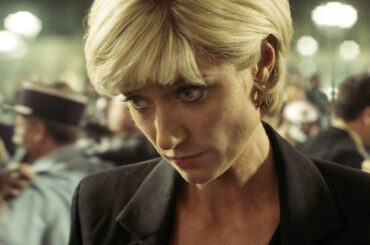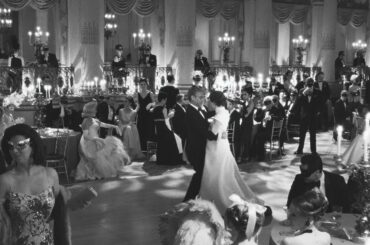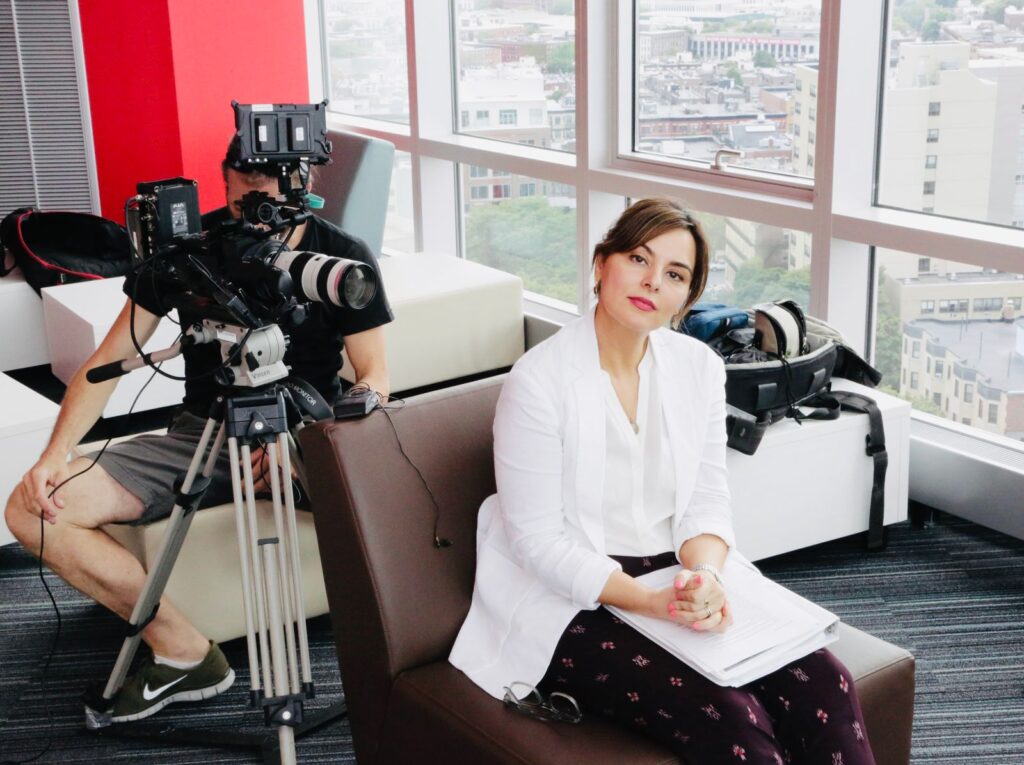
Director Dorsay Alavi crafts a dreamy trip through jazz musician Wayne Shorter‘s imagination. Hard to ask for more from a documentary about a singular artist, who collaborated with Alavi for over 20 years on live concerts and music videos. To call Alavi’s documentary personal for more than the content on-screen is an understatement.
She crafted a three-part doc (available on Prime) that speaks to Shorter’s fans as well as newcomers to the legend’s music. “I approached this as a human being, focusing on his story,” Alavi told Immersive Media. “I didn’t care if you liked jazz or not. This is an amazing human being who overcame many obstacles to achieve greatness. I wanted to inspire people with his story. So many people loved and respected Wayne, even those who didn’t like jazz. It didn’t matter. I wanted to capture Wayne as a human being who did extraordinary things and inspired people to never give up on their dreams.”
During an interview with Immersive, Alavi told us about her experience capturing Shorter’s imagination, questions she wanted answers to, and why she hopes the doc inspires more than just artists.
What was the production schedule for this?
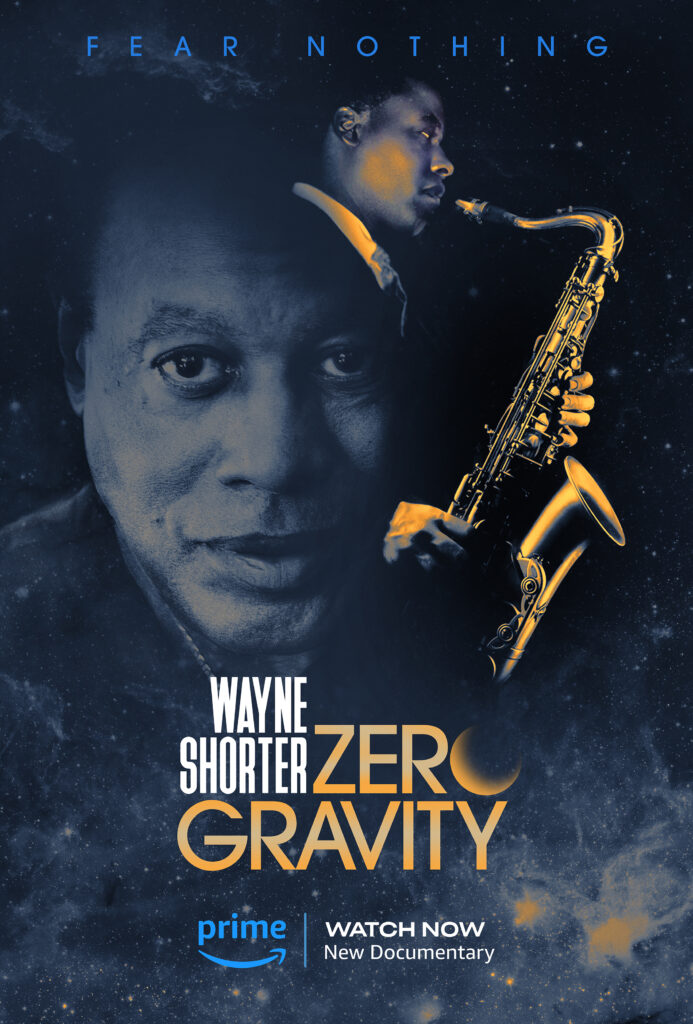
Well, it varied because it spanned 10 years in the making. There were periods when we weren’t making it; we were raising funds, so we had to stop and start. I also had to work around Wayne’s touring schedule, which was the most challenging part. He rarely stayed in one city for long, so most of the interviews took place all over the world. That made it difficult to have a linear progression on the production side.
You see a lot of portrayals of artists, and you usually feel like, oh, it doesn’t quite capture the creativity of this person in presentation. How important was it for you, aesthetically, to really reflect Shorter’s creativity?
It was really important because I felt like his personal life really informed his creativity. So many things Wayne did were influenced by what he was seeing in the world, what he had personally experienced, and what he wanted to convey. He had such big ideas and was so philosophical by nature.
For me, it was really important to focus on the human being first and then the music second because that’s how he approached music. I felt I had to do the same thing. Because I knew him personally, I was aware of so many layers to him that people were unaware of or didn’t have access to. I wanted people to really understand who Wayne Shorter was as a human being.
He had so much depth, but most people only knew him through his music. He had such an interesting life, and I wanted to capture that. So I decided to start from the very beginning and tell his life story, how he came to be the person he was, and how he grew to greatness.
It’s funny when you see his childhood at the beginning, the fact that he was into Universal Monsters and comic book movies. It seemed like those grand, larger-than-life stories bred his creativity. Did his childhood influences inspire your creative choices?
Well, he often talked about that because it was very important to him to maintain that childlike wonder. He felt that imagination was crucial to maintain throughout your life, even if you aren’t an artist. Anything you do, imagination is creativity, it’s innovation, it’s what makes the world move and progress.
He always attributed his personality and creative process to what he did when he was a child, the freedom he had, and the support system from his mother and his brother, who was his playmate. They had a symbiotic relationship and could just read each other’s minds and create worlds together. He often referenced his childhood, so I felt it was important to include it in the film.
As wise as he is, it feels like a lot of that wisdom comes from his curiosity. When you were talking about what he wanted to achieve with it, did he have questions about himself that he wanted to explore too?
No, he completely trusted me, which I loved, but it was kind of scary. He’s this big figure who’s very complex. Most people had a hard time understanding him, but somehow I understood him, and we were aligned as artists. We had similar ideas about how to approach our crafts, and we were both independent by nature. We decided to improvise from the very beginning, and I knew I had to follow his lead.
Whenever I tried to lead him in a certain direction, he would diverge. He would just go in a different direction. I quickly realized this is what he does with his quartet, this is how he collaborates. You have to trust the present moment and go with what is in front of you. Sometimes Wayne would be in one particular mood and didn’t want to talk about anything personal, but then sometimes he was so philosophical and over my head. I had to just go with whatever he gave me on that day.
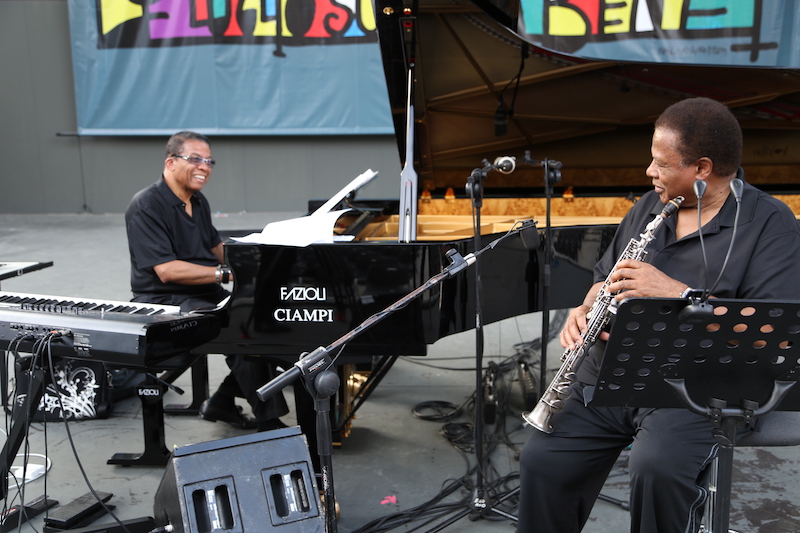
It’s funny hearing that you approached this filmmaking like jazz, because there are a lot more moving pieces than playing in a band. How was it having that improvisational approach to storytelling when it is this sprawling and technical?
Well, I kind of work that way as a screenwriter. I have a general idea of what I want to do, but I completely trust the process in the moment. It’s a sort of channeling process, and I think Wayne worked similarly as a composer and performer. When he was in the moment, ideas and streams of consciousness would take over, and whatever you thought you had planned just goes out the door. You just have to go with what’s coming to you at the moment.
I don’t know how each filmmaker does it, because my background isn’t in documentaries; it’s in narrative filmmaking. But I realized documentaries generally come together in the editing room. I felt like I didn’t need to control this so much. I wanted to trust, just like Wayne trusts when he improvises, but with a clear understanding of where I wanted to go. It wasn’t all willy-nilly, let’s just have fun. It had a structure, but it wasn’t finite. We weren’t there to say, “Okay, we’re going to achieve this.” We were going to start here and see where it took us.
Within those parameters and structure, what were some goalposts that had to remain from the beginning to allow for that improvisation? What for you always stayed?
Well, I knew that I wanted to start from the beginning to understand who Wayne Shorter was and how he became the amazing human being and artist he was. Each interview I was determined to focus on a specific period of his life. When I initially interviewed him, I said, “I just want to sit with you and have you tell me what the walls looked like during this period. What were the colors you remember?”
I started asking him very tactile questions to ground him in the interview first and then take him back in time. That’s why there are portals [in the story] because I truly wanted to transport the viewer into that time period. I also chose pallets that represented those portals, those time periods, and Wayne led me with the questions that I asked him.
What questions did you have personally that you wanted to explore and get answers to by making this?
I wanted to know mostly how his daughter’s illness affected him. There were certain things he encountered and how he overcame them. I wanted to know how he coped and handled a child that needed him when he couldn’t be there. You can’t ask Wayne those direct questions, he’ll never give you a direct answer. But when I watched the footage, I realized he was kind of answering it, but in his own way. I could feel it.
Did you have unlimited access to his music or were there limitations?
Musically, I was sort of limited. The challenges were I had to fly to Rome for an amazing concert he was doing there and find people who could adequately record and shoot it. Who can I find to do it? How am I going to find people to shoot? I mean, the challenge was traveling and finding people that could actually do the work and do it adequately. I had never worked with these people before, so sometimes, there were a few interviews I couldn’t even use because the sound was really bad or we had technical errors.
There was always the challenge of technical problems in another country and not having control over a set that I had to just go with what was there, having mixers like changing sound mixers. One week we had this guy, another week we had another guy. There wasn’t consistency, and that was challenging, but also I did rely heavily on it, because I had 90 something music cues in this film.
What about photos, the archives you had? Was he a nostalgic guy?
He had photographs in the ’80s and ’90s and current photographs, but that was it on a personal level. Some photos came, like images of his first wife, I had to get from her because Wayne didn’t have it. I would say there were photographs that we got from the Blue Note period that were from album covers. Those were professional photographs, but I did manage to get them.
I had to go through all of his garage and all the old photos, and they gave me just boxes and I couldn’t find anything. But I found this envelope full of photographs of when Art Blakey and the Jazz Messengers were in Europe on a boat, and they were personal photographs, not professional. I was like, oh God, I finally have something, and I really used them. They’re maybe about 10 photos. I don’t know who shot them.
How did your narrative background, your experience as screenwriter help you with this documentary?
Well, being a screenwriter really helps you in the writing process of the documentary, which really does require thought. Even when you are posing those questions, you have to have a general idea of where you want to go so that you’re just not asking questions and then you’re trying to figure it all out.
In the editing room, there is a thought process from the very beginning for me of, okay, this is where I’m going to take this. These are the questions I’m going to ask, and when I get the answers from all these people, it’s the process of going through those transcriptions alone and formulating a script, outlining which pieces you’re going to put together.
Then going into a radio cut, there’s a lot of writing that’s like an editorial process that you would do as a screenwriter. You have your idea, you start putting it down, and then you’re editing, and you’re editing and you’re editing, and finally by the time you get to the actual picture editing, for me, we just did a string out of all the things that I had highlighted in the transcripts and strung out this radio cut, and then just started refining that.
Did you ever consider writing a narrative feature on Wayne or just not possible?
Not really. I think that sometimes when you get into the narrative world, you sort of have to play up the drama and things like that. I feel that Wayne wouldn’t want that. He often talked about jazz musicians being depicted as tragic characters, and he didn’t like that. He felt that there was too much focus on the dysfunction and very little on the reverence and what they contributed to American music. The tragic musician, he really didn’t want that because he wasn’t that type of person.
For you, are there any questions still lingering about Wayne Shorter?
Well, that’s a really good question because I didn’t think about that. I feel that if I kept asking, the more questions I’d ask of Wayne, the more he would evade. I think he didn’t want to give me everything. He wanted me to explore it, and I think my best conversations with Wayne were always based on what was happening in the moment in the world.
I always miss his perspective. As things come up in the world, the challenges that we have, he was always my go-to, to ask him, “Well, what do you think about this? What do you think the real reason is?” He always had such a great perspective on things and very grounding for me, and that’s what I miss the most.
Wayne Shorter: Zero Gravity is now available to stream on Prime.


